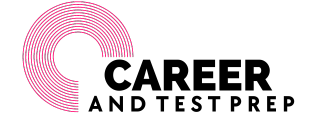Preparing for a job interview can be a daunting task, especially if you’re unsure of what to expect. However, with the right preparation, you can increase your chances of impressing the interviewer and landing your dream job. In this article, we will provide you with a comprehensive job interview preparation guide that covers everything from researching the company to practicing common interview questions.
The first step in preparing for a job interview is to research the company. This will help you understand the company’s values, mission, and culture, and enable you to tailor your answers to fit their expectations. You can start by visiting the company’s website, reading their blog, and following them on social media. Additionally, you can check out their reviews on Glassdoor and other job review sites to learn more about the company’s work environment and culture.
Once you have a good understanding of the company, the next step is to prepare for common interview questions. Some of the most common interview questions include “Tell me about yourself,” “Why do you want to work for us,” and “What are your strengths and weaknesses.” Practicing your answers to these questions will help you feel more confident and prepared during the actual interview. In the following sections, we will provide you with more detailed information on how to prepare for these questions and others.
Understanding the Interview Process
When it comes to job interviews, it’s important to understand the interview process to help you prepare and perform your best. The interview process can vary based on the company and the position you’re applying for, but there are some common types of interviews and interview formats that you should be aware of.
Types of Interviews
There are several types of interviews that you may encounter during your job search. Here are a few of the most common:
- Phone interviews: These are often used as a screening tool to narrow down the pool of candidates before inviting them for an in-person interview. Phone interviews are typically shorter and less formal than in-person interviews.
- Video interviews: With the rise of remote work, video interviews have become more popular. They can be conducted using software like Zoom or Skype and allow the interviewer to see and hear you, even if you’re not in the same room.
- In-person interviews: These are the most common type of interview and typically involve meeting with one or more people from the company in person. In-person interviews can be formal or informal, depending on the company culture.
Common Interview Formats
In addition to the types of interviews, there are also different interview formats that you may encounter. Here are a few of the most common:
- Behavioral interviews: These interviews focus on your past experiences and how you’ve handled specific situations. The interviewer may ask questions like, “Tell me about a time when you had to deal with a difficult customer.”
- Case interviews: These are often used in consulting and finance industries and involve solving a hypothetical business problem. The interviewer may present you with a case study and ask you to walk them through your thought process.
- Panel interviews: These involve meeting with multiple people from the company at once. Panel interviews can be intimidating, but they allow the company to get input from multiple people and help you get a sense of the company culture.
By understanding the types of interviews and interview formats you may encounter, you can better prepare for your job interview and feel confident going into it.
Preparation Strategies

Preparing for a job interview can be a daunting task, but it doesn’t have to be. By following these preparation strategies, you can increase your chances of success.
Researching the Company
One of the most important things you can do before an interview is to research the company. This will not only help you understand the company’s mission and values but also help you tailor your answers to fit the company’s needs.
Here are a few things you should research about the company:
- Company history and background
- Products or services offered
- Company culture and values
- Recent news or press releases
Analyzing the Job Description
Another important step in preparing for an interview is to analyze the job description. This will help you understand the key skills and qualifications required for the position and allow you to tailor your answers to fit those requirements.
Here are a few things you should analyze in the job description:
- Required skills and qualifications
- Job duties and responsibilities
- Company expectations and goals
Mock Interviews
One of the best ways to prepare for an interview is to practice with a mock interview. This will allow you to get comfortable with answering common interview questions and help you identify areas where you may need improvement.
Here are a few things to keep in mind when conducting a mock interview:
- Use common interview questions
- Practice with a friend or family member
- Record the interview to review your performance
By following these preparation strategies, you can improve your chances of success in your next job interview. Remember to answer common interview questions confidently and leave a lasting impression on the interviewer.
During the Interview

Congratulations, you’ve made it to the interview stage! This is your opportunity to showcase your skills and personality to the interviewer. Here are some tips to help you make the most of it.
Effective Communication
Effective communication is key during the interview process. Speak clearly and confidently, and make sure to listen carefully to the interviewer’s questions before answering. Don’t be afraid to ask for clarification if you’re unsure about something.
When answering questions, be concise and to the point. Avoid rambling or going off on tangents. Use examples from your past experiences to illustrate your points and demonstrate how you have the skills required for the job.
Body Language
Your body language can convey just as much information as your words. Make sure to sit up straight and maintain eye contact with the interviewer. Avoid fidgeting or slouching, as this can make you appear nervous or uninterested.
A firm handshake and a smile can also go a long way in creating a positive first impression. Remember to be friendly and personable, while still maintaining a professional demeanor.
Handling Difficult Questions
It’s not uncommon to be asked difficult questions during an interview. These might include questions about your weaknesses or past mistakes. The key is to stay calm and composed, and to answer the question honestly and tactfully.
When answering a difficult question, try to turn it into a positive by highlighting what you learned from the experience and how you have grown as a result. Remember, the interviewer is not trying to trip you up – they simply want to get a better sense of your skills and personality.
By following these tips, you can approach the interview process with confidence and leave a lasting impression. Remember to be yourself, and let your personality and skills shine through. Good luck!






